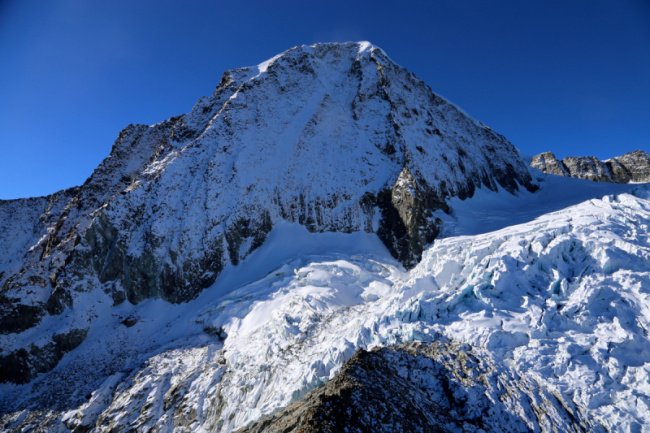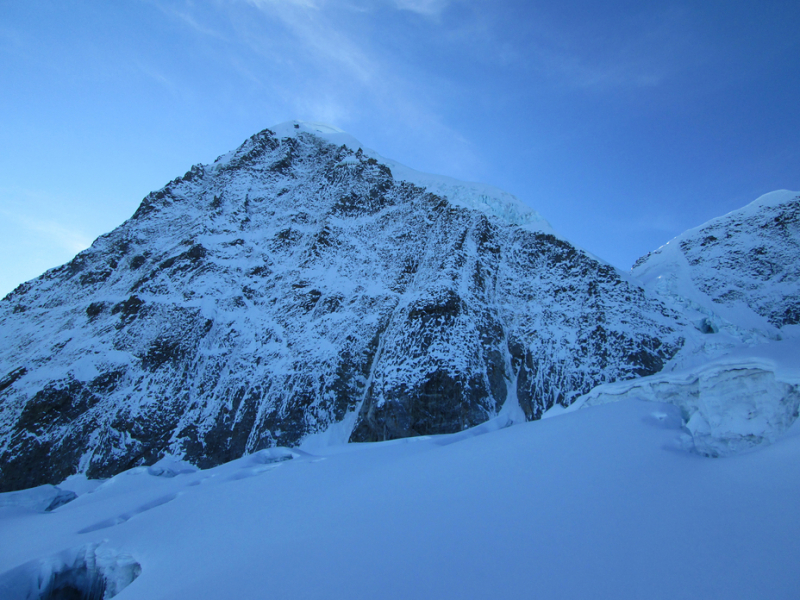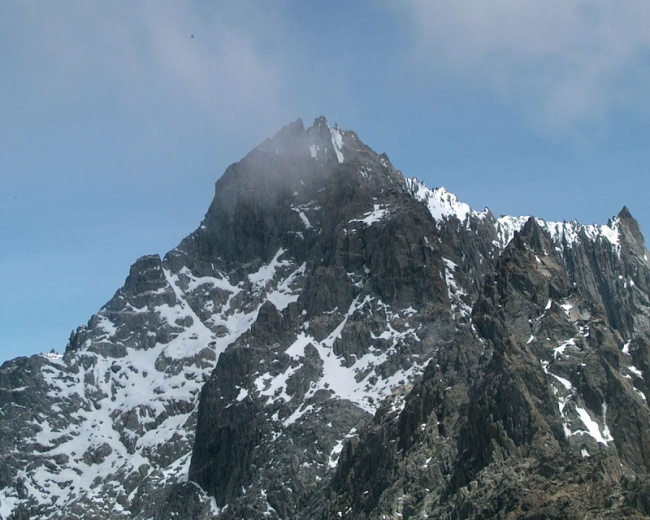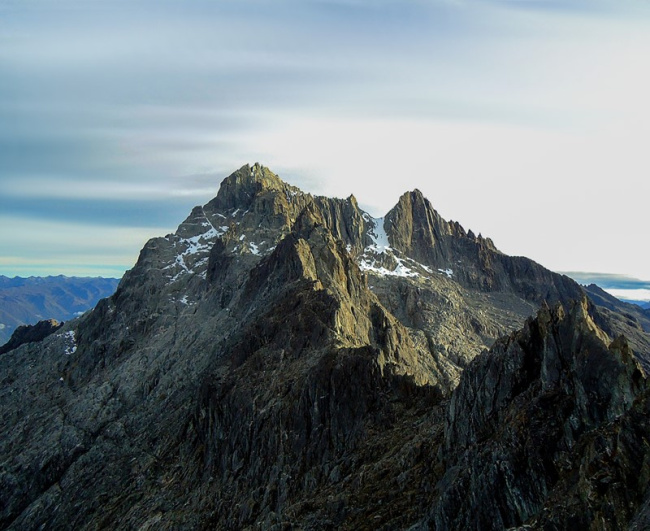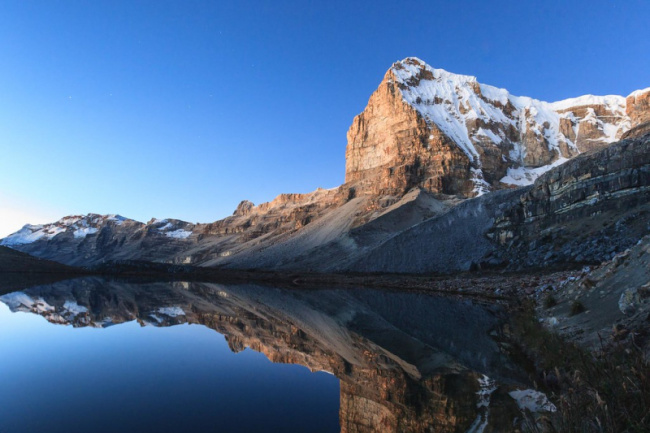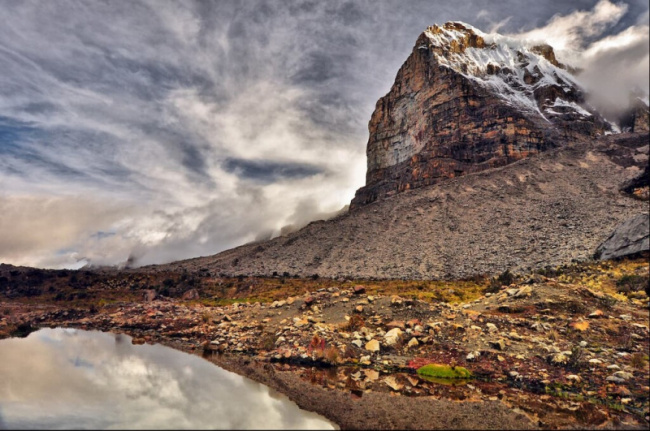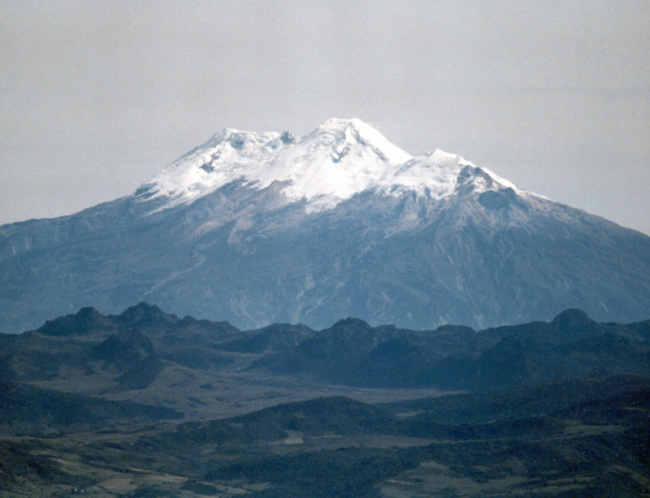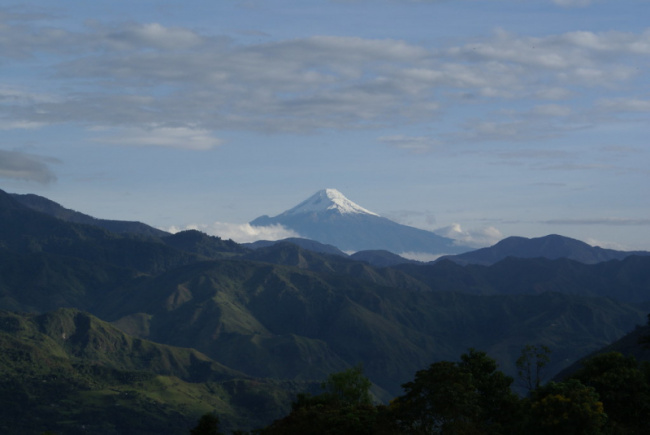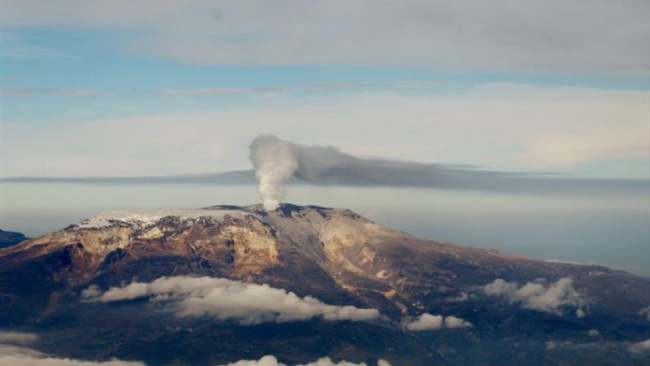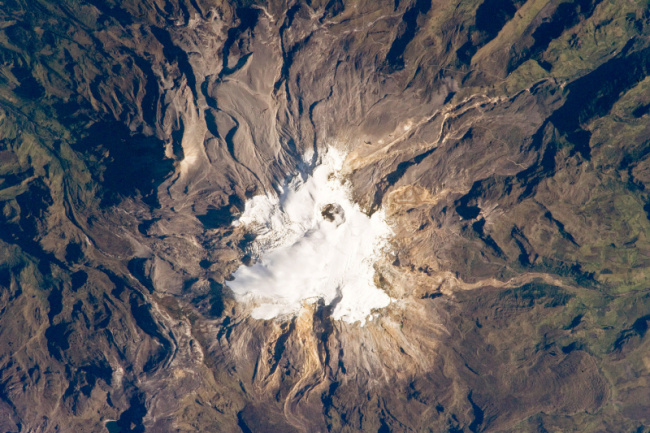Source: https://top-list.co/top-highest-mountains-in-colombia-v3581.html
1. Pico Cristobal Colon, 2. Pico Simon Bolivar, 3. Ritacuba Blanco, 4. Nevado Del Huila, 5. Nevado del Ruiz. Colombia is a South American country that shares borders with Venezuela, Brazil, Peru, Ecuador, and Panama, as well as the Caribbean Sea and the Pacific Ocean. The Colombian Andes and the Sierra Nevada de Santa Marta are two huge mountain ranges that define the country's landscape. To help you find more useful information about the mountains in Colombia, Toplist has compiled a list of the highest mountains in this country for you! Let’s begin with the first name!
Pico Cristobal Colon
The Pico Cristobal Colon, at a height of 18,950 feet, is Colombia’s highest summit. In 1939, W. Wood, A. Bakerwell, and E. Praolini were the first to climb this peak, which is part of the enormous Sierra Nevada of the Santa Marta range. The next highest mountain in the region is Cayambe, a volcano located 1,288 kilometers (800 miles) from Pico Cristóbal Colón’s base. This summit, as well as the adjacent mountains, has a constant snowcap. Along with Pico Simón Bolvar, it is part of the Sierra Nevada de Santa Marta range.
Pico Cristobal Colon is located about ten miles to the west of Sierra Nevada National Park. Although the mountains are over 90 miles east of Cartagena, the region is mountainous and underdeveloped, making the Nevada Mountains difficult to reach. Most tourists prefer the panoramic views of the mountains from the coasts.
Location: Santa Marta, Magdalena, Colombia
Height: 5,775 meters (18,950 feet)
Range: Sierra Nevada de Santa Marta
Pico Cristobal Colon. Photo: peakbagger.com
Pico Cristobal Colon. Photo: mountain-forecast.com
Pico Simon Bolivar
Pico Simon Bolivar is the next name on the list of the highest mountains in Colombia. Pico Simon Bolivar is named after Simon Bolivar, a revolutionary hero. The Sierra Nevada National Park contains Pico Simon Bolivar. With an estimated height of 5,730 meters, Pico Simón Bolvar is Colombia’s second tallest peak (18,800 ft). Pico Bolvar and Pico Cristóbal Colón, Colombia’s two tallest summits, are virtually identical in elevation. Along with Pico Cristóbal Colón, it is part of the Sierra Nevada de Santa Marta range.
Wood, A. Bakerwell, and E. Praolini were the first to climb Pico Simon Bolvar in 1939. Due to hostile tribes, narcotraficantes, and FARC guerillas, access to these highlands became extremely difficult after the early 1990s. An expedition that reached the peak of Pico Cristóbal Colón in 2015 was one of the first in the range in many years.
Location: Magdalena Department, Colombia
Height: 5,775 m (18,947 ft)
Pico Simon Bolivar. Photo: wikidata.org
Pico Simon Bolivar. Photo: addflag.com
Ritacuba Blanco
At 17,749 feet, the Ritacuba Blanco is the highest peak in the Cordillera Oriental and Colombia’s sixth tallest mountain. It is located in the state of Boyaca, near the Venezuelan border’s center area. The Sierra Nevada National Park contains the peak. The glaciers on this mountain have been harmed by global warming, and they are expected to vanish totally by 2025. Ritacuba Blanco’s glaciers once reached a height of 14,800 feet above sea level, but by 2007, they had been reduced to a height of 15,700 feet. The glaciers are expected to melt at a pace of 25 linear meters per year.
The ranges are now primarily used for mining, timber, ranching, and agriculture, which has resulted in extensive deforestation. This has had a negative impact on the climate and habitats of animals such as the Andean spectacled bear, the rare jaguar, amphibians, bird species, bats, and insects due to habitat fragmentation.
Location: Sierra Nevada del Cocuy, Colombia
Height: 5,410 m (17,750 feet)
Range: Cordillera Oriental, Colombia; Andes
Ritacuba Blanco. Photo: flickr.com
Ritacuba Blanco. Photo: peakvisor.com
Nevado Del Huila
The Andean volcanic arc’s Nevado Del Huila is a stratovolcano. It stands at 17,602 feet above sea level, making it Colombia’s sixth tallest peak. The mountain has been designated as a red-alert zone with the danger of future eruptions due to recent volcanic activity. The huge stratovolcano, Nevado del Huila, is Colombia’s tallest active volcano. It is constructed within an older caldera and has an extended N-S shape with a sequence of andesitic-dacitic lava domes and ice-capped summit sections.
Nevado de Huila, as part of the Andean range, is home to the world’s largest array of biodiversity and endemic species. Biodiversity is defined as a wide range of organisms that can adapt to the climatic circumstances of their habitat. The paramo, cloud forests, montane forests, animals, fungus, and microbes are all unique to the ranges. Agriculture and transportation have both been utilized in the region.
Location: Huila Department, Tolima and Cauca Departments
Height: 5,365 m (17,602 feet)
Range: Central Ranges; Andes
Nevado Del Huila. Photo: volcano.si.edu
Nevado Del Huila. Photo: flickr.com
Nevado del Ruiz
The Nevado del Ruiz, also known as La Mesa de Herveo, is a volcano in Colombia that is located on the border between the departments of Caldas and Tolima, about 129 kilometers (80 miles) west of Bogotá. It is a stratovolcano with many layers of lava sandwiched between hardened volcanic ash and other pyroclastic rocks. Since the Early Pleistocene or Late Pliocene, volcanic activity at Nevado del Ruiz has lasted about two million years, with three major eruptive periods. During the current eruptive period, which began 150,000 years ago, the current volcanic cone was formed.
For a mountain of its altitude, Ruiz is a relatively easy climb. The weather around the volcano is also very bad for the majority of the year, so be prepared for bad weather and changing visibility. Nevado del Ruiz has not erupted in a major eruption since 1985, but the mountain could erupt at any time and has already erupted several times. When the eruption danger is perceived to be greater than usual, the volcano is closed to climbing.
Location: Caldas and Tolima, Colombia
Height: 5,321 m (17,457 feet)
Range: Central Ranges, Andes
Nevado del Ruiz. Photo: spainsnews.com
Nevado del Ruiz. Photo: earthobservatory.nasa.gov

